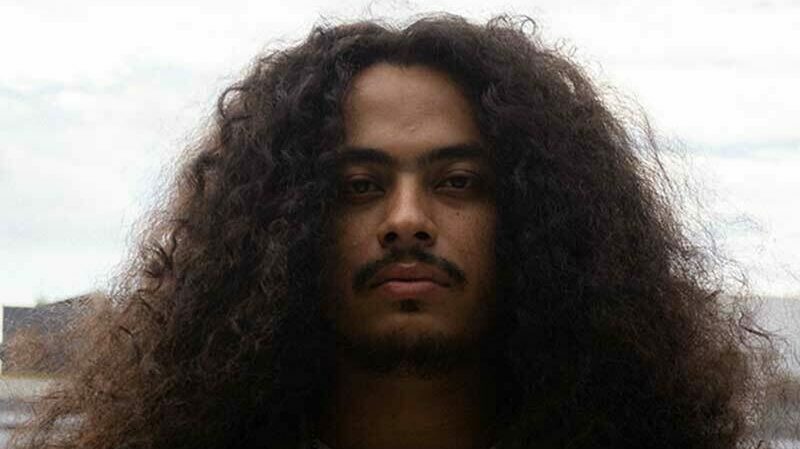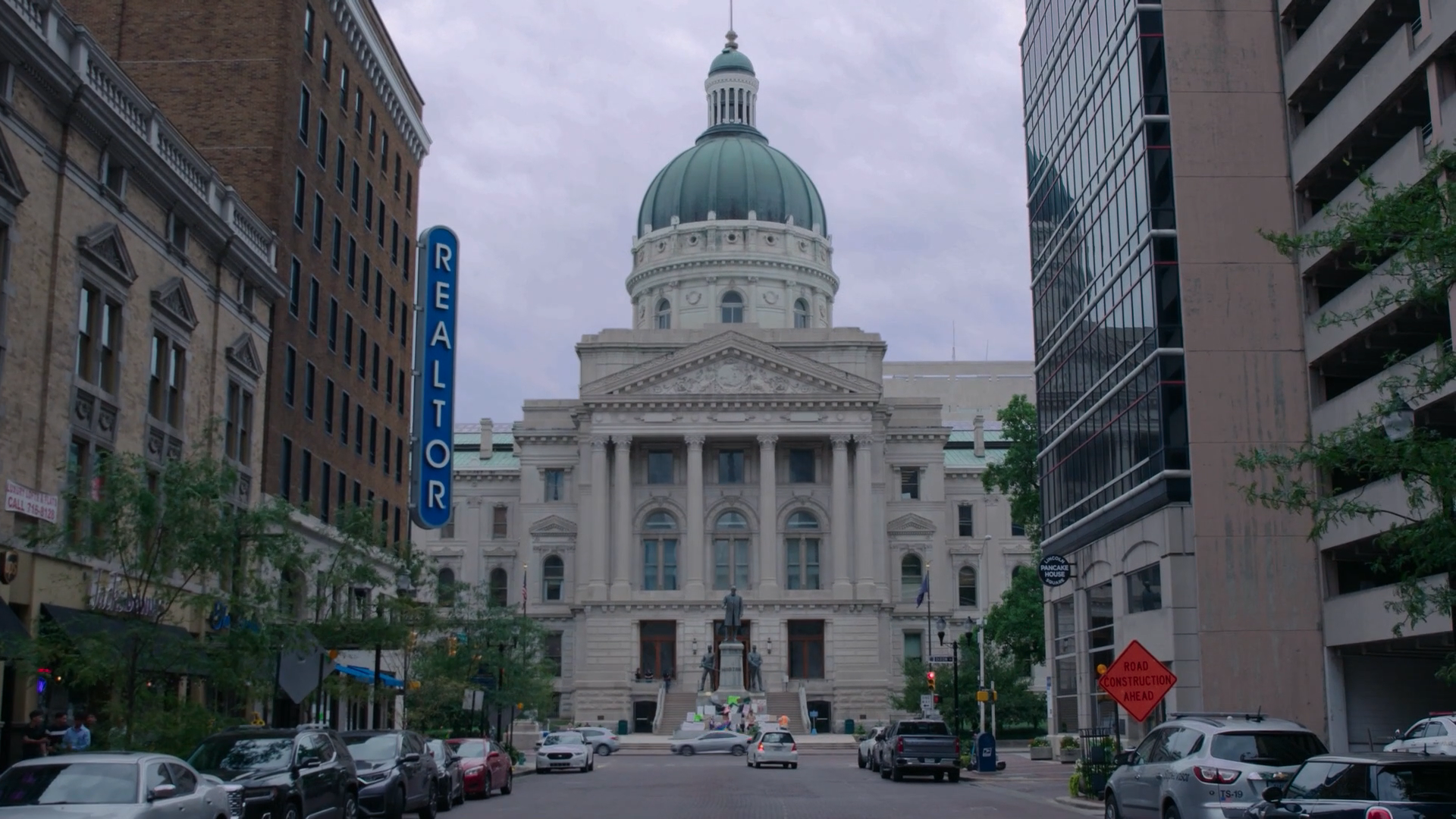Filmmaker of 'Lucie and Annie' Amy Oden Speaks with Cooper Reed on LGBTQ+ Rights in Maine
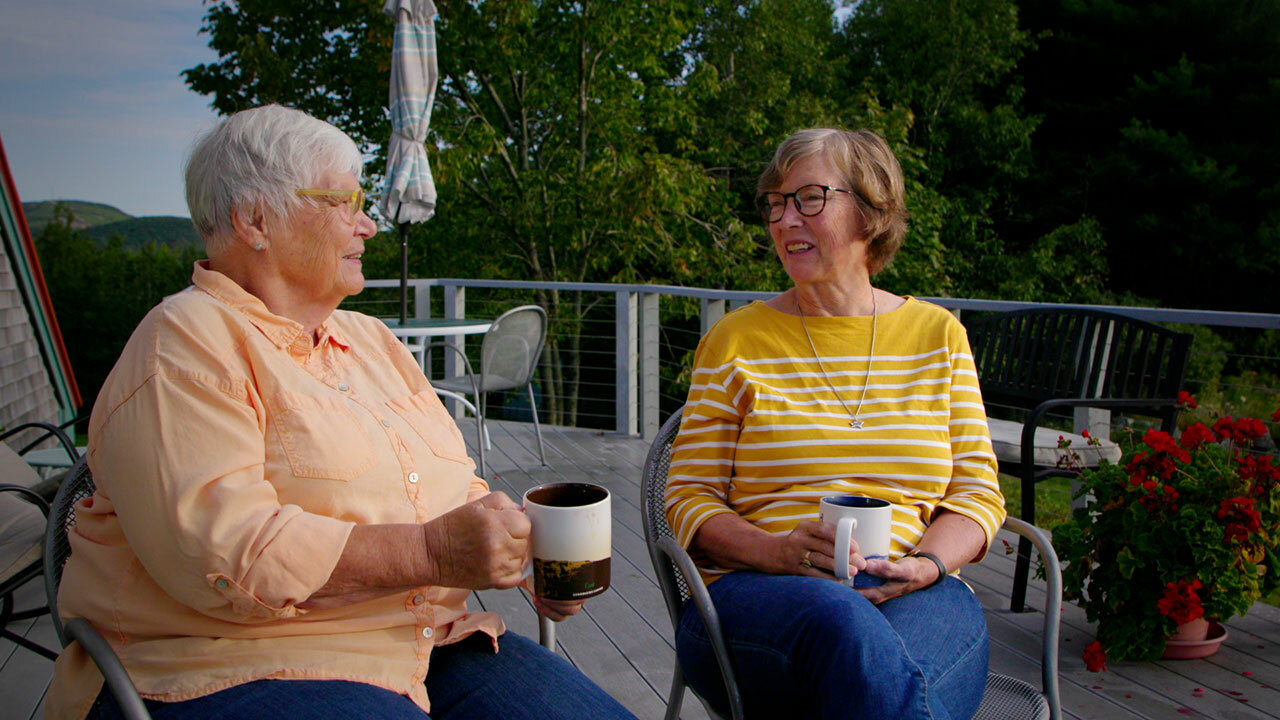
Amy Oden: Lucie and Annie have been together long enough that they have been married multiple times, in several states. Can you give us an idea of what the path to marriage equality looked like in Maine?
Cooper Reed: Lucie and Annie have been together for almost three decades. In 1996, the couple held a commitment ceremony here in Maine. When marriage became legal in California in 2008, they got married there. That same year, the Maine legislature passed marriage equality legislation that was signed into law by Governor Baldacci. However, the law was challenged with a petition that put it on the ballot for voters to decide in 2009. That year, [field organizers] talked to voters about the rights and benefits of marriage and the desire to be equal. It was a tight race, but ultimately we lost that year by a narrow margin. In no time, the next marriage campaign for the 2012 election was started. We learned a lot in that time, and it was rather simple: we had to talk about what marriage means to us, about our love and commitment. We had to talk to each other as friends and neighbors. On the night of the election, [this strategy] paid off! Marriage would be the law of the land on the enactment date (just over a month later, December 28th, 2012 - marriage day! At 12 a.m., some city halls across the state opened to allow couples to get married, and Lucie and Annie were amongst the couples in Portland to celebrate the fact that their home state now recognizes them as a married couple. I cannot imagine the marriage campaigns over the years without the integral work of Lucie and Annie.
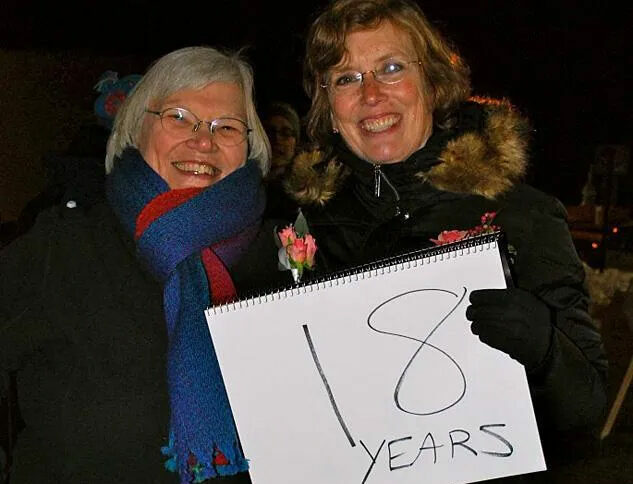
Amy: What other issues and legislation are top-of-mind for folks in the Maine state houses right now?
Cooper: In Maine, both the House and Senate are majority “pro-equality.” This means legislators have been able to pursue positive bills [for the LGBTQ+ community]. Just this year, Governor Mills has signed bills into law that standardize the collection of sexual orientation and gender identity in health care settings, as well as update language in the Maine Human Rights Act about gender identity.
Amy: Lucie and Annie talk about "putting themselves out there"; they've done a lot of public education work to help folks understand what an LGBTQ+ couple who wanted to be married looked like. What do you think these types of efforts look like now, in Maine? Who is leading them?
Cooper: Lucie and Annie have done a tremendous amount of work spanning decades for LGBTQ+ rights, and to help make marriage legal in Maine for LGBTQ+ couples. This has included marching in parades, making phone calls, knocking on doors, protesting, talking to churches and civic organizations about their experiences, volunteering on boards, supporting nonprofit organizations and their staffs, supporting youth, hosting fundraisers, you name it! Public education work continues in 2023, and just as it always has, this work happens everywhere. Whether it’s at dinner tables or in front of lawmakers, at the doctor’s office or at work, LGBTQ+ people in Maine continue to educate those around them about our identities. While the work goes on, people like Lucie and Annie have helped to pave the way for future generations to make the path a little easier to travel.
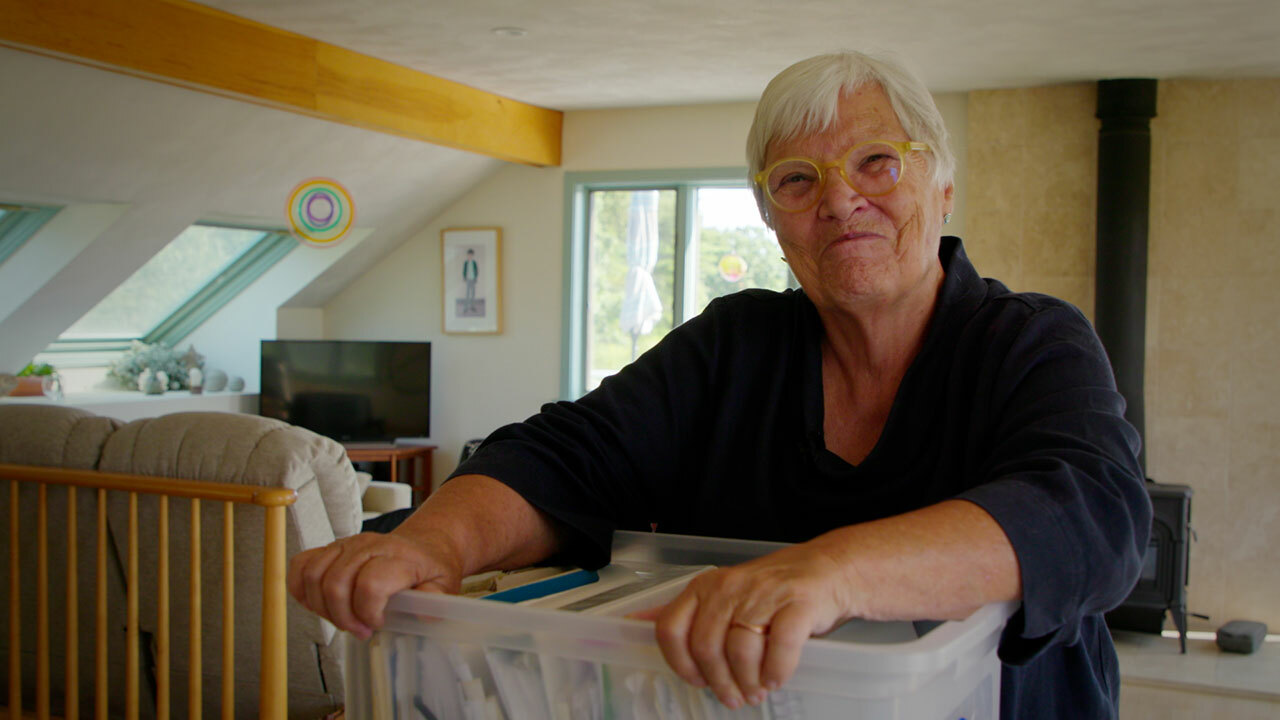
Amy: Lucie and Annie are packing up some of their archival material to donate to the queer archives at the University of Southern Maine in the piece - where else can folks look for info about the LGBTQ+ community in Maine?
Cooper: The University of Southern Maine hosts the largest LGBTQ+ collection in the state, but it is certainly not the only place to find information about the LGBTQ+ community in Maine. We are fortunate to have several organizations in the state who conduct regular education, advocacy, and support work and are always a great place to go to find out more about our collective history. Equality Maine and OUT Maine are great sources of info, and Safe Combinations is a thrift store run by Maine TransNet [that serves primarily trans and gnc folks].
Amy: Lucie and Annie also talk about "standing on the shoulders'' of other activists. What do you hope for the future of LGBTQ+ activism in Maine?
Cooper: I have so many hopes and dreams for the future of LGBTQ+ activism in Maine. I hope that we can learn from each other across generational lines about all the work that has come before us, and our collective hopes about the future. I hope that those of us who have been in movement work will support those entering this work. I hope that we can support LGBTQ+ people of all ages where that help is needed most. Lastly, I hope that places like Maine will continue to be an example for the rest of the country in advancing real lived equality everywhere.
Lucie and Annie
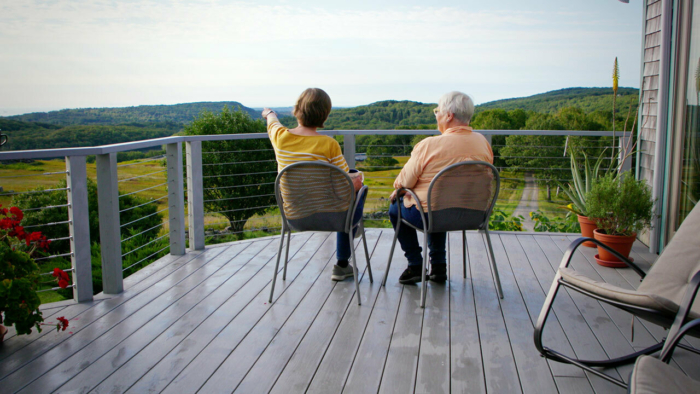
More like this
Visit the Behind The Lens Blog